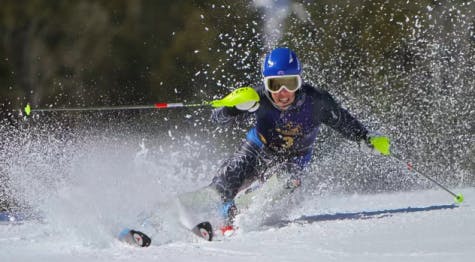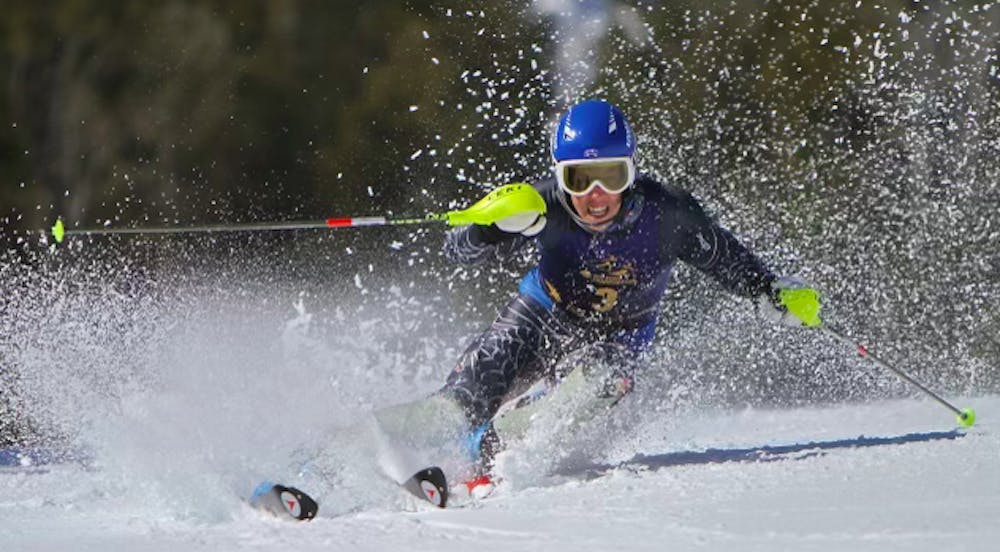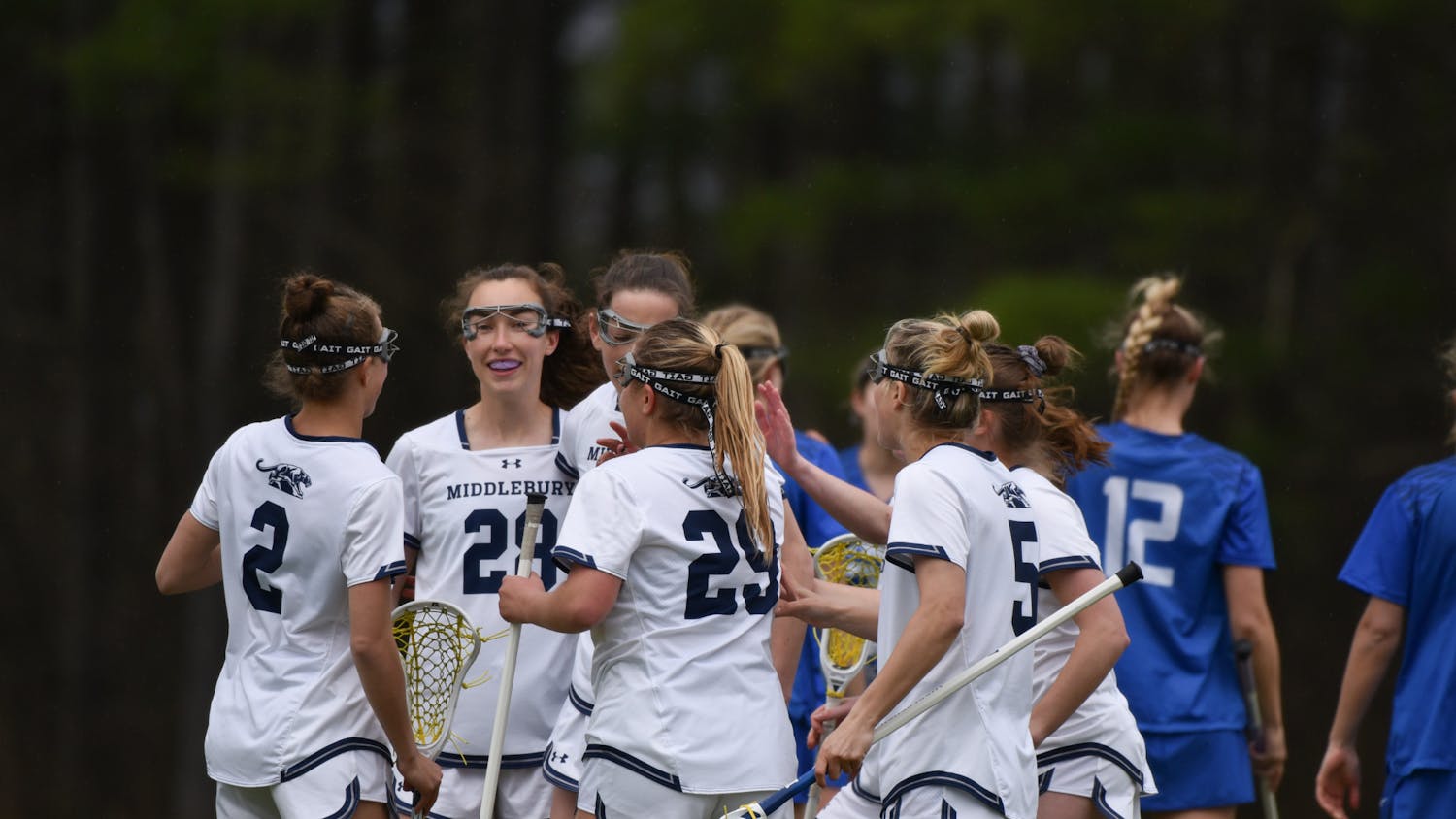“I just woke up one morning, and I said, ‘Enough is enough,’” Hig Roberts ’14 told The New York Times in December 2020.
Roberts, who skied on the alpine team at Middlebury and led an accomplished professional skiing career, came out as gay in an interview last year with The Times — the first men’s alpine skiing champion to do so.
He had made 31 starts in the World Cup from 2015–19 and won two giant slalom national titles on the U.S. ski team. But Roberts said hiding part of his identity had held him back.
“Not being able to be who I am and not being able to be openly gay as a professional athlete was truly hindering my performance,” Roberts said in the interview.
Now, Roberts is hoping to lead by example and show younger generations of skiers that sexuality is not a limitation to athletic success.
A Steamboat Springs, Co. native, Roberts grew up immersed in a vibrant skiing culture. He first threw on a pair of skis at two years old, not long after learning to walk. From a young age, Roberts’ talent was clear, and, by age nine, he signed up for his first major competition. That opportunity was thwarted, though, due to a femur injury he suffered before the event. It was an injury that doctors thought would prevent him from skiing again, but with the help of a risky surgery, Roberts got back on his feet and continued to compete.

As Roberts aged, he discovered that alpine skiing was, by reputation, a very masculine sport. He didn’t identify with that status quo, he said, which disconnected him from his teammates and deterred him from coming out publicly.
“I realized I was different from my teammates, and I think they realized it too even if they weren’t sure I was gay,” Roberts said in an interview with The Campus. “However, I took a mature approach to this, and it made me work even harder because I figured I just needed to work harder to make myself equal to my counterparts.”
While his differences from his teammates initially inspired Roberts to work harder and excel, as he grew older, the difference became more of a detractor. Roberts said he felt like an outsider even as he became an established figure in the professional skiing world.
“When skiing became my career, I just thought my brain was playing a trick on me,” Roberts said. “I didn’t think being different was an advantage. It felt like a reversal of maturity to have to hide a part of myself.”
Despite his hidden discomfort, Roberts embarked on a very successful career — although he took an unusual path to get there. He was recruited to U.S. Ski Team B after graduating from Middlebury in 2014, granting him the rare distinction of being a college skier chosen to join the U.S. National Team. His performance in 2013 at the World University Games in Italy, where he placed seventh overall in the giant slalom, propelled him to this achievement..
In 2017, Roberts edged out a seven-time national champion, Tim Jitloff, for a national title in the giant slalom in Sugarloaf, Maine. He repeated that feat in 2018, cementing his place among the most talented skiers of his age.
All the while, Roberts was dealing with intense personal struggles, including grappling with his sexuality and a devastating personal tragedy.
In August 2016, Roberts’ younger brother, Murphy, died from a head injury he suffered after collapsing from a diabetic seizure. The loss was immeasurable for Roberts and nearly ended his career.
“Losing him will never be able to be rationalized,” Roberts said. “It made me realize how short life is. However, I have learned a lot from his example. Murph was always unabashedly himself. I know he would have helped me get through coming out because he taught me how important it was to be authentic and to be yourself. ”
Now that Roberts has come out, he’s been given the chance to kickstart a new chapter in his life — one in which he’s able to be his true self. He had spent his entire life attempting to conform to the standards of masculinity expected from professional male skiers, and his retirement liberated him from those expectations.
“I want my story to reach kids who are fearful of being who they really are, because when I was younger, I didn’t see any kids like me,” Roberts said. “It’s all about adding visibility to the space. It’s important to remember that your story is unique, and that you will find support around you.”
Men’s alpine ski champion Hig Roberts ’14, first to come out as gay, blazes trail for next generation

Courtesy: Stever Bartlett
Comments



